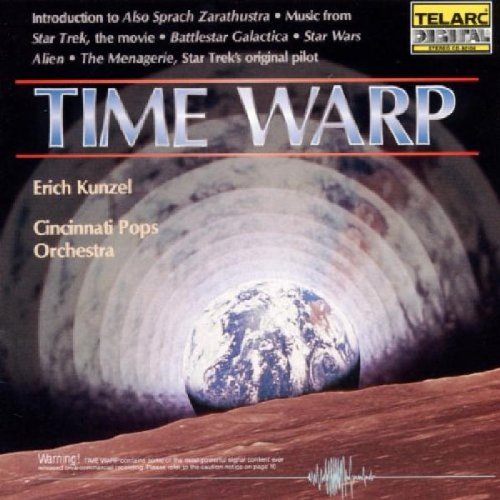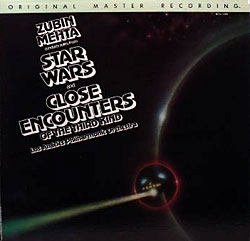| Columns Retired Columns & Blogs |
I have the non-MFSL Decca/London Lp, and yes ... it is superb!
(I had the MFSL cassette, too. The MFSL LP is readily avail on eBay for not much $$; and the CD re-issue, see below, is probably the best version of all)
The Mehta/LA Phil has been released on CD a few times in various iteration, including this from 1997 ...


... and, yes, I do think the CD versions surpass my 1978 London LP. Can't speak for the MFSL LP, however
BTW ...
The Star Wars (Original Soundtrack, London SO) on RSO (double LP) was notorious for poor sound, so the Mehta/LA Phil/London version was refreshing.
Then, in 1993, the SW original trilogy was remastered in a box-set release, and this significantly improved the original releases of all three films.
SW music is represented well in recorded media ... lots of selection ... but of most interest to audiophiles may be two Telarc releases from the early 80s:


.
 Williams: Suites from Star Wars and Close Encounters of the Third Kind
Williams: Suites from Star Wars and Close Encounters of the Third Kind



































